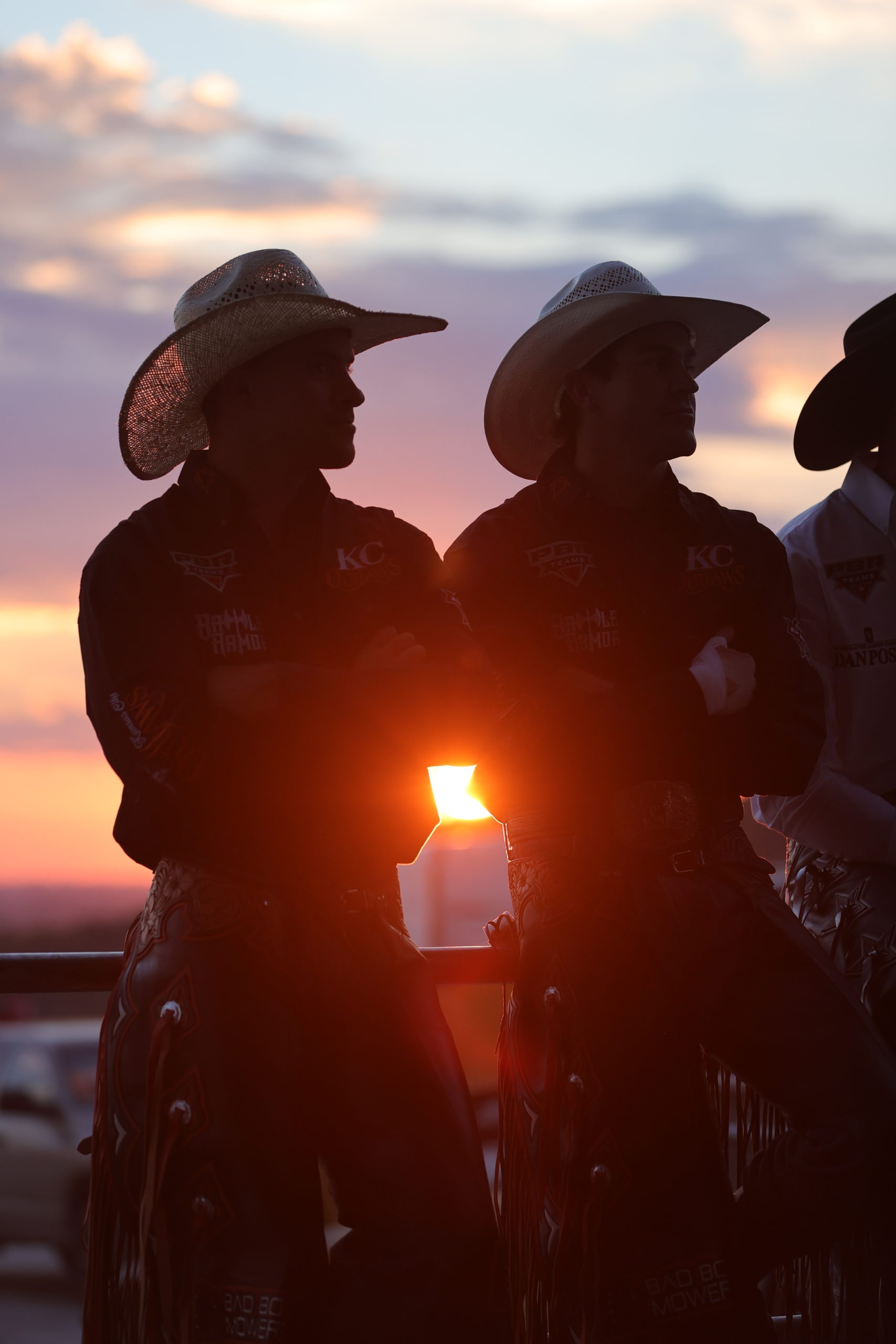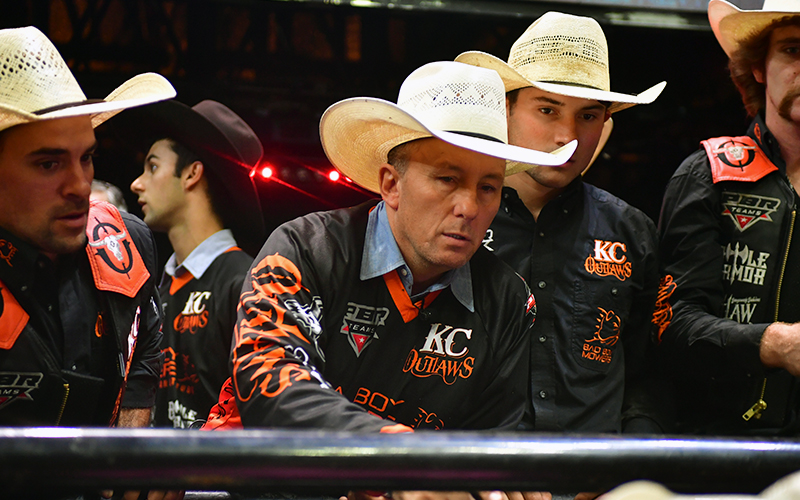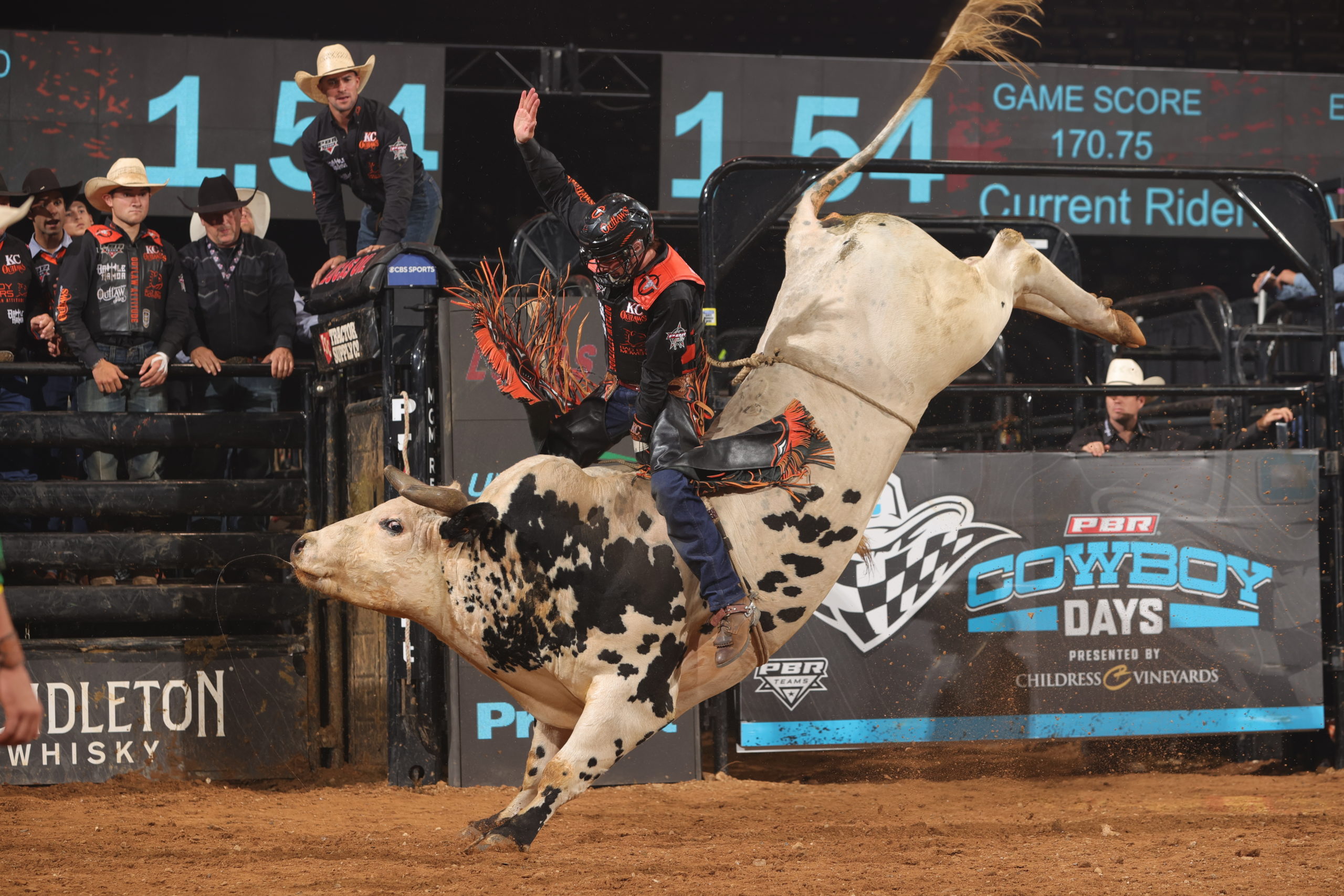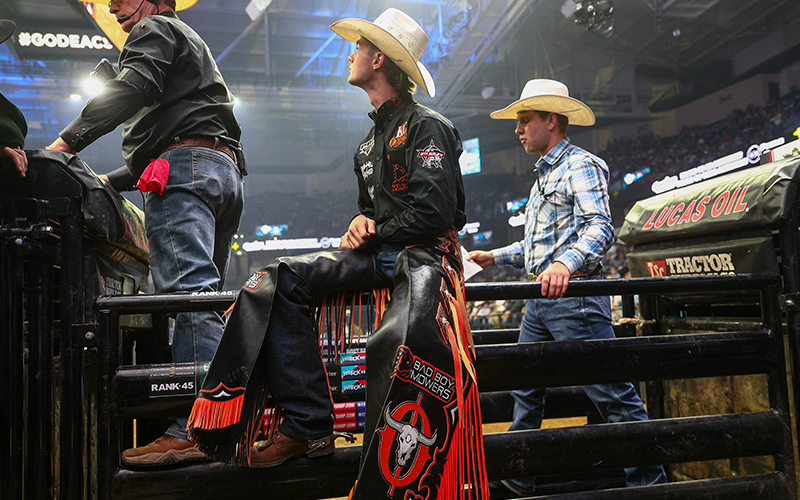
Kansas City’s first-ever professional bull riding team kicked off its second season with their annual homestead, Outlaw Days, at T-Mobile Center. While the competition raged indoors, the Outlaw Days Festival surrounded the center in celebration of the modern-day cowboy.
The team is making strong Kansas City connections, first by featuring Chiefs’ Super Bowl Champion starting center Creed Humphrey as the team’s official fan ambassador. The Outlaws also partnered with Jack Stack Barbecue for several fundraising events to benefit Children’s Mercy. The team also made a direct donation of $10,000.
“The Kansas City Outlaws are committed to giving back to the community that has welcomed us with such open arms, and we couldn’t think of a more fitting partner than Children’s Mercy,” says Outlaws president Lennie Foree. Children’s Mercy patients were able to virtually join the Outlaws in the locker room prior to the first game and meet several of the league’s bulls.
Coach J.W. Hart and rider Kyler Oliver sat down to speak about their experiences in bull riding.

How has the sport of bull riding changed over the years?
J.W. Hart:
Everything, everything except the concept of a guy on a bull. I mean, early on, we didn’t have helmets or vests or the protective gear that they have today. But the big thing is that the money has changed over the years, the quality of animal, the care they’re taking has changed, the preparation and conditioning of the riders have changed—everything has changed for the better.
Bull riding doesn’t exactly seem like a team sport, but I know you compete as a team. What’s the dynamic on a team like the Outlaws?
J.W. Hart:
It’s interesting because there are hundreds of years in rodeo and the sport of bull riding where it’s just an individual man: my own dollar, my own time—everything. That’s the free spirit of the cowboy, in essence, as well. But it’s no secret that team sports are really the biggest sports in the world. So it’s interesting to see guys in an individual sport come together as teammates. A lot of them come from sports—they played football or wrestled—and the response I’m getting is that it brings them back to when they were in a team atmosphere in school, and they enjoy it—they buy into it. I think it improves bull riding.
Kyler Oliver:
Yeah, so I never thought of it as a team sport, either. But also, we’ve always been a team, you know, we were kind of always like brothers, we go to all the same rodeos together. Some people travel together. So when the team aspect came together, I was really excited. I think it’s helping a lot of guys who are just coming into the sport and are really talented. They’re able to progress faster because they have so many people behind them—physical trainers, nutritionists, everything like that. They’re really helping us more than if we were just on our own.

What goes into training to ride a bull?
J.W. Hart:
It’s not really any different than for, say, football or baseball. These guys are professionals. They know how to ride a bull like Tom Brady knows how to throw a football. The coach is just there to polish those guys up and see where they may be making little mistakes that can cause bad habits. That’s what we really concentrate on. We’re just honing what we have and letting them figure out that they play as a team—they pull for each other, they help each other. I just want the chemistry between the guys. The riding actually takes care of itself.
I know you deal with some pretty serious injuries. Does that affect the way you compete?
Kyler Oliver:
I try not to let it affect my mindset. If you let it take over your mind, you’re probably just not even going to do it. But it can affect your body a lot, and it takes a toll on you, for sure. We’re going to the doctors and physical therapists all the time. I mean, when we get hit, it’s like being in a car accident. That’s what the doctors say—that our injuries are equivalent to car accidents. So, it takes a toll on your body. If you don’t love it, you’re not going to put yourself through it. And I broke my neck, my jaw, my collarbone, and a bunch of ribs last year. So I guess I’m crazy, or I just really love what I do.
What are some of your long-term goals?
Kyler Oliver:
Yeah, I’ve been thinking about that this past year since I’ve been hurt, and I honestly love sports rodeos a lot. I think that I would love to be able to produce rodeos in the future, or at least have that be one of the things that I do. I love broncos. And I love to rope. I grew up going to rodeos ever since I was a little kid, and it’s where I feel at home—either on the road traveling to a rodeo or when I get there is when I feel the happiest.


